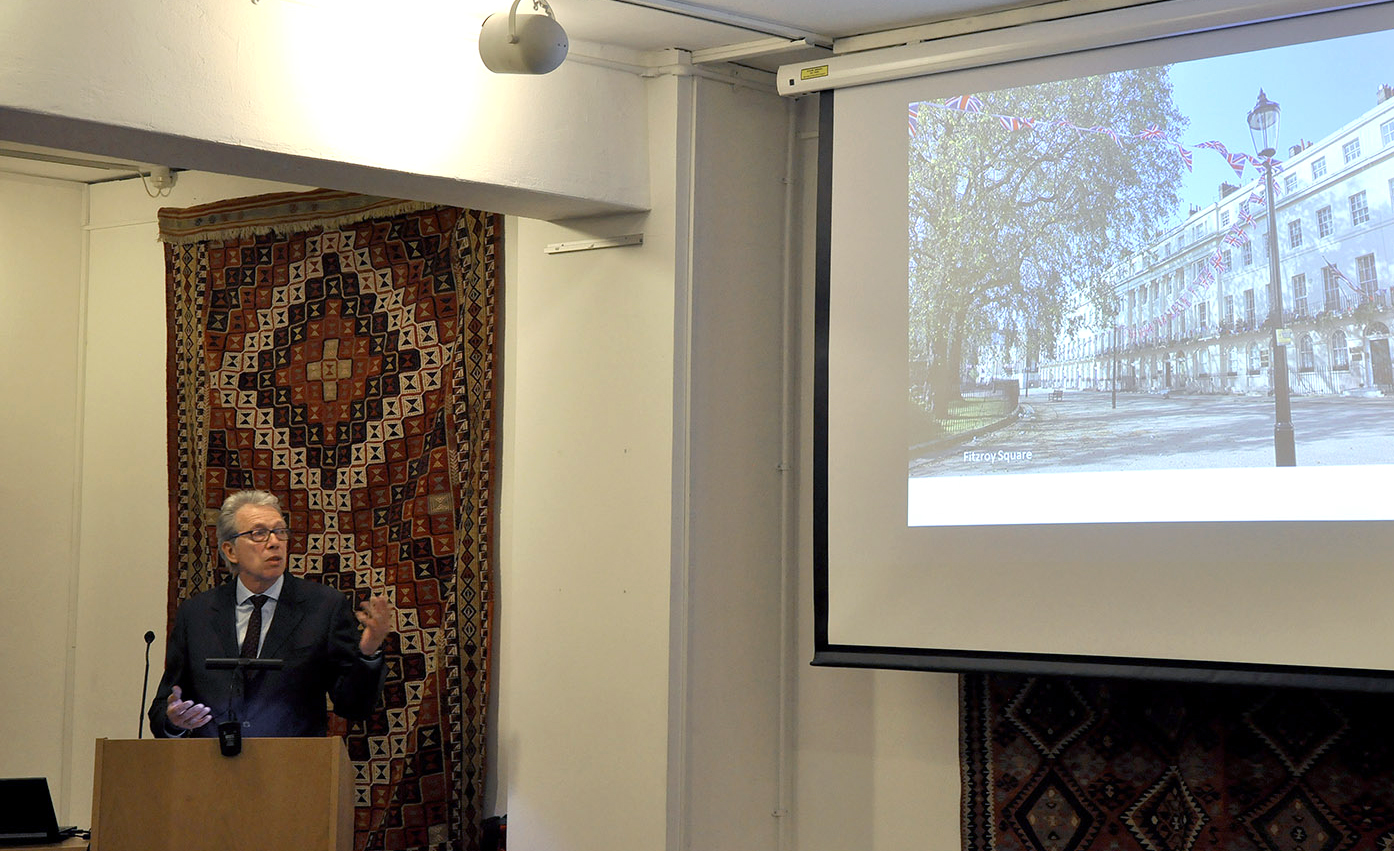Paul Knox's new book on London is the first in a Global Forum series

Paul L. Knox is a University Distinguished Professor, former dean of Virginia Tech's College of Architecture and Urban Studies, and now co-director of the university’s Global Forum on Urban and Regional Resilience. Knox is also an award-winning author released a new book, the first in a series from the Global Forum.
“London: Architecture, Building, and Social Change,” published through Merrell Publishers, explores the evolution and growth of the city, examining many facets of the economic, social, and architectural history surrounding the mosaic of its districts and villages. The book features more than 500 original photographs, the majority taken by Knox.
“The book is for people who are interested in learning more about the city and why it is so important. It’s not about the famous buildings in London. It’s about the characteristics and vibrancy of the city,” said Knox. “One of the goals for these books is to bring the concepts of urban development and resilience to a wider audience and further the understanding of the changing urban landscape of cities as well as the problems they face.”
Knox is successful in bringing academic subjects to a broad audience. In April he will receive the 2014 AAG Globe Book Award for Public Understanding of Geography from the Association of American Geographers for his book “Atlas of Cities.” The award recognizes one book published last year that most powerfully conveys the nature and importance of geography to the nonacademic world.
A book about London is a good choice as the first in the Global Forum on Urban and Regional Resilience’s series because the city offers a model of the very resilience the forum examines, Knox said. “London is one of the most durable, resilient cities in the world. It has been ravaged by bombs, floods, fires, and plagues, and as a city, it has been resilient and reinvented itself time and again.”
The Global Forum brings together faculty from Virginia Tech and partner organizations to expand knowledge on resilience. Resilience has become an important concept in planning and policy globally in response to new vulnerabilities from climate change; economic, social and political instabilities; and population expansion into places where the potential for human disruptions from natural events is heightened. This international network will enable centers of excellence to share ideas and resources to advance the science and practice of developing more resilient places.
Dedicated to its motto, Ut Prosim (That I May Serve), Virginia Tech takes a hands-on, engaging approach to education, preparing scholars to be leaders in their fields and communities. As the commonwealth’s most comprehensive university and its leading research institution, Virginia Tech offers 240 undergraduate and graduate degree programs to more than 31,000 students and manages a research portfolio of $513 million. The university fulfills its land-grant mission of transforming knowledge to practice through technological leadership and by fueling economic growth and job creation locally, regionally, and across Virginia.







